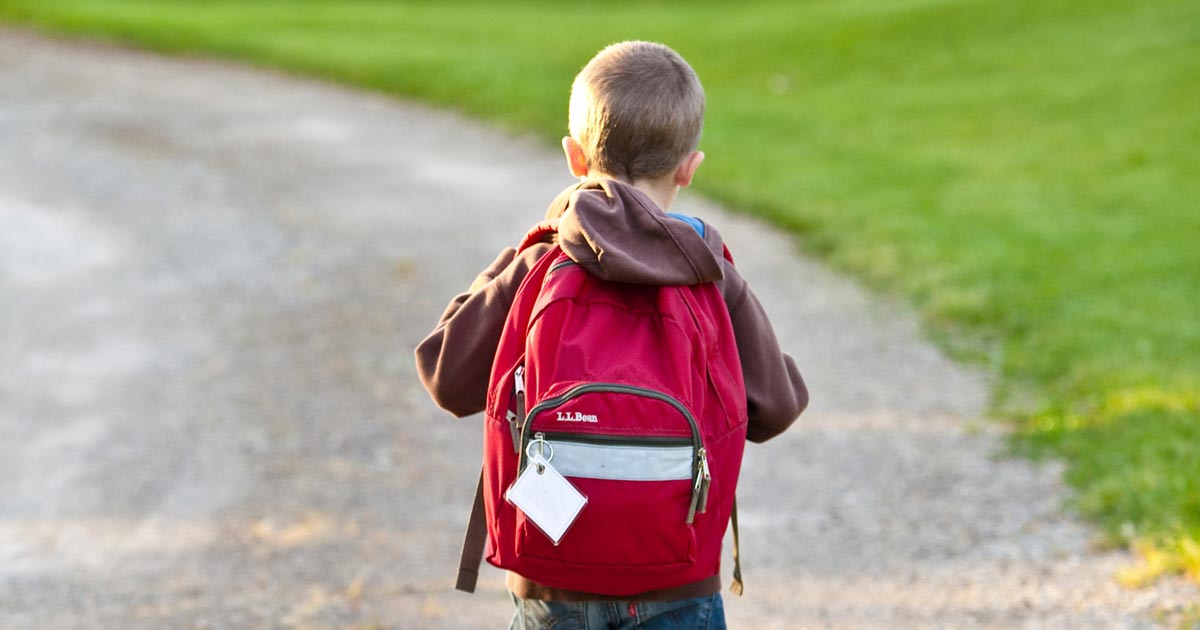Getting ready for a new school year can be an exciting time for kids and parents.
It can also be a major cause of stress. Whether your child is heading to school for the first time, starting a new grade at their same school, or moving to a new school, leaving the safety of the familiar and venturing into the new can be a little scary.
"Fear of the unknown is the root cause of most anxiety," said Adelle Cadieux, PsyD, a pediatric psychologist with Helen DeVos Children's Hospital. "It's that way for everyone, even adults. And some kids are just naturally more nervous than others so transitions like going back to school will be more difficult for them."
So how can parents tell when natural nervous excitement becomes problematic anxiety for their child?
"Look for an impact or disruption to your child's normal ability to function," Dr. Cadieux said. "Are feelings of stress preventing him or her from getting ready in the morning and going to school? Or are they having a hard time falling asleep at night or eating enough because they're so worried and anxious?"
If so, she said, then it's probably more than just a simple case of the butterflies.
Open the door
Start by simply observing your child's mood and behavior for signs about how they may be feeling. Then, start a conversation. But don't expect too much.
"Use the 'I noticed that you seem worried. What's going on?' approach," Dr. Cadieux said. "Go in with no expectations of finding out anything too specific. Young children may not be able to verbalize and older kids may not want to talk about it."
You may pick up some small clue that will be useful in guiding your next steps and your child will know you care and are available to listen if they can or want to talk more.
Take steps to reduce fear
Dr. Cadieux offers these tips to help you emotionally prepare your kiddos for the start of school:
- Tour the school. If an open house is held, go. If not, arrange a time to visit.
- Meet the teachers, see the classrooms and cafeteria, and locate your child's locker.
- Find out who's in your child's class. Make arrangements to meet or connect with new and old friends.
- Practice key skills such as reading or writing. Get a fun workbook for learning (or reviewing) ABCs, numbers or basic math.
- Spend time apart if you have a young child that's not used to being separated from you for long periods of time.
If your child is having a difficult time after school has started, be sure to talk to teachers and the school principal. It's helpful for them to be aware and there may be ways they can help make the school environment more comfortable for your child.
If the anxiety becomes severe, talk to your child's pediatrician and consider family counseling, Dr. Cadieux said.
"Counseling can help your child learn how to deal with their stress and you learn how to best cope with their behaviors," she said. "With kids, these feelings often come out as behavioral issues like extreme anger, irritability and defiance."
Mornings matter
"I can't emphasize enough how important a morning routine is, especially if you, as the parent, are also getting ready to leave the house at the same time," Dr. Cadieux said. "If you're feeling stressed, it increases anxiety in your kids."
She suggests planning ahead for what to eat for breakfast, what to wear, what time to wake up, what time to leave the house, and getting book bags and lunches packed the night before.
"Having a structure in place really helps reduce stress," Dr. Cadieux said.
This article was republished with permission and originally appeared on Corewell Health's HealthBeat Blog.
Written by Corewell Health.




